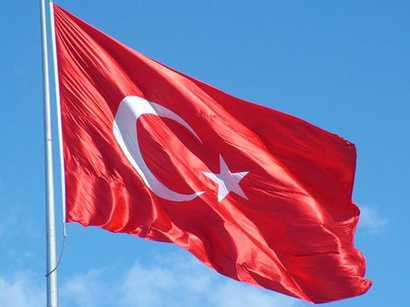PHILIPPA RUNNER
Today @ 11:01 CET
EU and US diplomats are arriving in Georgia on Saturday (9 August) to try to broker a ceasefire in a fast-escalating conflict between Georgia and Russia, after fighting intensified and spread overnight, with casualties mounting despite international appeals.
Russian jets have bombed the town of Gori near Tbilisi and oil installations in the southern Georgian port of Poti. Georgia has evacuated government buildings in the capital and president Mikhail Saakashvili has moved to a “safe location,” where he formally asked parliament to impose martial law.
Meanwhile, Russian tanks and Georgian armour continued to pound each other inside the breakaway Georgian republic of South Ossetia, with both sides making wildly different claims over who controls the South Ossetian capital, Tskhinvali.
Georgia says 30 of its men have been killed, while Russia says 15 of its soldiers are dead. Russian foreign minister Sergei Lavrov estimated that over 1,500 people, mostly civilians, have been killed, with Tskhinvali in ruins and refugees streaming north across the Russian border.
The EU delegation is being led by South Caucasus envoy Peter Semneby, with the US sending its top South Caucasus diplomat, Matthew Bryza. Lithuanian foreign minister Petras Vaitiekunas is also going on a separate, fact-finding mission for the EU.
The French EU presidency says it has had “multiple contacts” and is “in liaison with all the protagonists” to try and stop the fighting, while EU top diplomat Javier Solana has spoken by phone with the Georgian and Russian foreign ministers.
Diplomatic solution difficult
Prospects for a diplomatic solution remain uncertain, however, after a second meeting of the UN security council on Friday failed to agree on a ceasefire resolution, with the US and the UK at odds with Russia on the wording of the text.
France, Germany, the UK and NATO have all urged an immediate end to hostilities, but steered clear of apportioning blame. The US statement was the most hawkish, “deploring” Russia’s use of bombers and missiles as a “dangerous and disproportionate escalation” and calling for the withdrawal of Russian troops.
The shooting began on 4 August between Georgia and South Ossetian separatists, in what at first looked like just another skirmish in a so-called “frozen conflict” that dates back to 1991, when South Ossetia began a war of independence during the break-up of the Soviet Union.
But the rebels kept firing on ethnic Georgian villages in South Ossetia all week. On Friday morning, Georgia launched an offensive to “restore constitutional order” and capture the separatist capital. Hours later, Russia reacted by sending tanks across the Georgian border and ordering air strikes against its small neighbour.
In the broader context, Russia has long-supported the South Ossetian separatists by smuggling arms, handing out Russian passports and stationing 2,500 Russian “peacekeepers” in South Ossetia, in what Georgia sees as a Russian effort to stop it from joining NATO and to unseat its pro-western government.
Who is to blame?
Some analysts are blaming Georgia for the current crisis, saying its attempt to retake Tskhinvali has misjudged the international mood and has destroyed its chances of joining the North Atlantic military alliance.
“He [president Saakashvili] is in big danger of losing the cachet he built up for himself in being pro-western and the restraint he has often shown in the face of provocation by Russia,” London’s Royal Institute of International Affairs expert, James Nixey, told Reuters.
“I don’t think he can count on the [US] cavalry riding in,” Brussels’ EU-Russia Centre analyst James Cameron said. “You don’t bring in [to NATO] a country that has this sort of trouble,” RAND Corporation expert and former US ambassador to NATO, Robert Hunter, told Bloomberg.
European Council on Foreign Relations analyst, Nicu Popescu, said the timing of Georgia’s assault on Tskhinvali – the same day as the opening of the Beijing Olympics – may be significant. “It might be a signal to the Russians saying that the [2014] Sochi Olympics will not go the way Russia wants if there is no progress on the settlement.”
Geopolitics in play
Others say the surprise summer war was engineered in Moscow.
“The goals behind Moscow’s operation are threefold,” Jamestown.org analyst Vladimir Socor explained. “To re-establish the authority of Russian-controlled negotiating and ‘peacekeeping’ formats…to capture Georgian-controlled villages in South Ossetia [and] to dissuade NATO from approving a membership action plan for Georgia.”
“The Russians want a more direct confrontation with the west and I hope the Bush administration has the wisdom not to give them that satisfaction,” Globalsecurity.org analyst John Pike told newswires.
“What is being decided here is whether bordering Russia and simultaneously being a US ally is a suicidal combination. Whichever way this works out, the dynamics of the entire region are about to be turned on their head,” Strategic Forecasting Inc said in a flash report.




